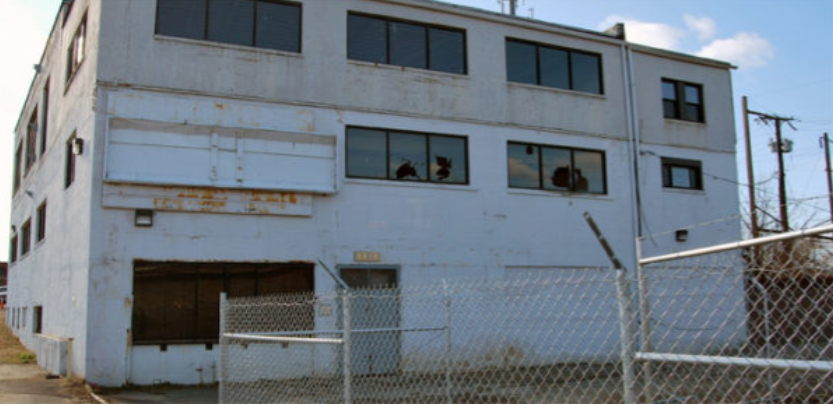By Jenny Gathright
A protracted struggle to build a new men’s halfway house in D.C. is one step closer to being over.
D.C.’s Historic Preservation Review Board voted Thursday in opposition to a historic designation for 3701 Benning Road Northeast. The 7-1 vote clears the way for the organization CORE DC, which holds the contract for a 300-bed men’s halfway house from the Federal Bureau of Prisons, to build at the Ward 7 location.
The future of services in D.C. for men ending their federal prison sentences has been in limbo for two years. CORE DC was initially awarded its contract in November 2018. Then, its proposed location in Ward 5 fell through after a group of neighbors sued the city over zoning regulations—and the property owner, prominent D.C. developer Douglas Jemal, backed out of a lease with CORE DC.
The company did not secure a new location until earlier this year, when it bought the property on Benning Road. A raze application for the property was filed in August. But plans were further delayed by a push for historic designation, led by the neighborhood’s ANC Commission, which argued that the property’s past use as meat rendering plant made it a worthy local landmark.
As CORE DC’s struggle to secure a location stretched on, advocates warned that having no halfway house within city limits would make it significantly more difficult for men to find jobs, housing, and necessary services upon their return home from federal prison. Hope Village, a halfway house that operated in Ward 8 for decades, closed in April amid a lawsuit challenging its coronavirus response. Many of the men who were finishing their prison sentences there were transferred to home confinement, under a contract held by CORE DC. However, those who had been unable to secure housing were transferred to other halfway houses outside of the District.
At Thursday’s meeting of the Historic Preservation Review Board, ANC 7F Commissioner Tyrell Holcomb argued that a historic designation would be an effort to preserve Ward 7’s often-forgotten industrial past.
“We believe it is important to honor the entire history, pretty or not, of our neighborhood,” Holcomb said.
Historians with EHT Traceries, the firm retained by ANC 7F to investigate the building’s history, argued that the building—a meat rendering plant for the A.D. Loeffler Provisions Company that was adjacent to a larger complex of abattoirs—is one of few remaining remnants of the city’s old meat industry, and would represent an acknowledgment of the rich history of neighborhoods east of the Anacostia River. (Most recently, it was the location of DC Eagle, a historic gay bar that moved to Benning Road from its New York Avenue location in 2014.)
Representatives from CORE DC and other advocates have derided the application for landmark status as an effort to prevent a halfway house from coming to the neighborhood.
“What is more important to us as a people? Preserving a remnant of a building with diminished integrity where sausages were once made, or making way for the future with a new building, a new reentry center, with new ideas and a new approach to help these men reach their full potential?” CORE DC CEO Jack Brown said at the board meeting.
Ultimately, the Board sided with a report from Historic Preservation Office staff that said the building was in poor condition, of “middling significance,” and unworthy of the landmark designation. Members of the HPRB Board suggested that they would be supportive of honoring the history with a plaque or an oral history project. (It was not immediately clear who would fund or spearhead such a project.)
Tim Dennée, who spoke at Thursday’s meeting on behalf of Historic Preservation Office staff, described the building as “a factory that provided sausage to area residents for about 17 years.” Dennée said the building’s “significant integrity issues” could be overlooked if the property was of “demonstrably great significance,” but ultimately did not recommend historic designation for the site.
In written testimony to the HPRB, Michael Warley, an attorney with the Council for Court Excellence, which advocates for local criminal justice reform, said approving the designation would be “particularly problematic” because it would prop up “harmful preconceptions regarding what type of development and residents are desirable” and “contribute to a culture that denigrates returning citizens and brands them as unwelcome in the community.”
While Holcomb previously told DCist/WAMU that the historic designation “isn’t about preventing the halfway house from coming to Ward 7,” the ANC has published a statement opposing the halfway house location and circulated a petition to drum up opposition. Holcomb has said he would prefer smaller halfway houses throughout the city, as opposed to one 300-bed facility—and has argued that other wards should share in the responsibility of housing residents returning from prison.
Ward 7 Councilmember Vince Gray has also expressed strong opposition to the halfway house, saying that it would threaten future economic development in the neighborhood.
The defeat of the historic designation application means that the District is one step closer to having a halfway house for men once again.
“Many of these men, the majority of whom are Black and Brown, are in reentry centers outside of D.C. and far away from home,” said Brown.
CORE DC declined DCist/WAMU’s request for comment after HPRB decision. But speaking Tuesday on WPFW’s Crossroads radio show, CORE DC President Carlyle Holder said the new halfway house would bring “just under 80 jobs” to the District—and the company was aiming to hire D.C. residents, and in particular residents of Ward 7.
“Give us that chance,” Holder urged residents. “Let our words be our bond…the men returning to Washington D.C. are going to be able to go back to their families and children and become productive citizens.”




Comments are closed